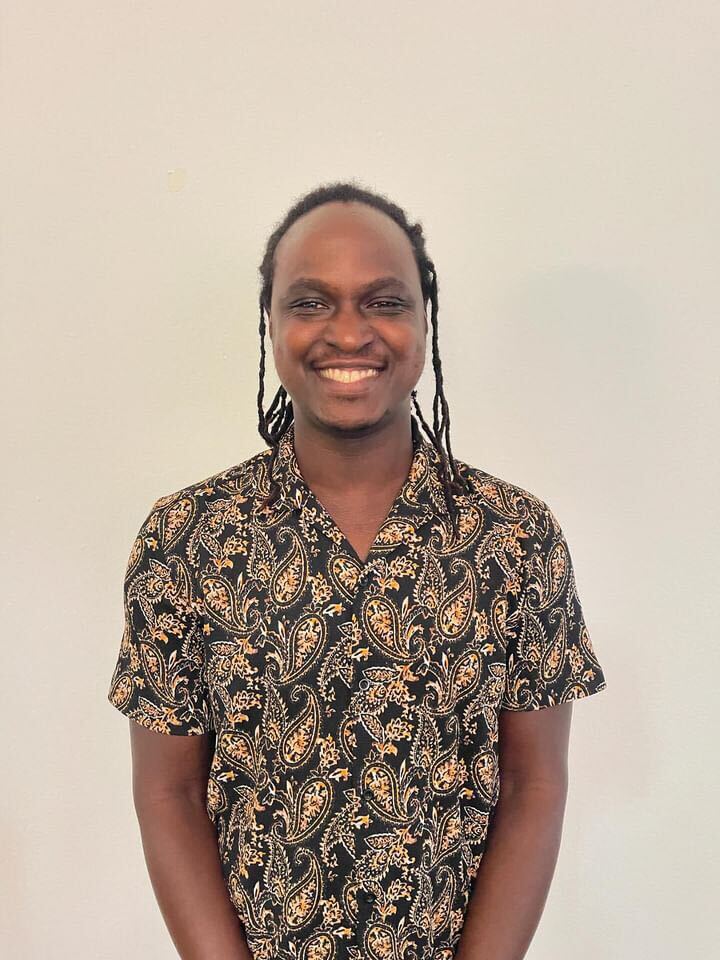
How do you evaluate the situation of the rights and living conditions of the LGBTIQA+ community right now in Uganda after the passing of the law?
Of course, the situation of the LGBTIQA+ community since last year has by all means, just worsened beyond our imagination because we witnessed an increase in the violence mended against them. From the forced evictions to the homelessness to the unemployment, people losing their jobs because of their sexuality, people being tortured even when under police custody. We have also had increased numbers of forced nudity and cases where LGBTIQA+ people have been raped.
Just last week, I was on a phone call with a very young transgender woman who was arrested on charges of attempted homosexuality. Put into police office, first of all, undressed in front of other police officers to identify her genitals. And then afterwards, she was pushed into a men’s cell. And then, the police officers shouted: “We are bringing you a homosexual.” And then this young trans woman was raped in prison or in a police cell, multiple times. So these kind of violence is happening, and the situation has just definitely gotten worse in this area.
As an activist and as representative of your organisation, how do you cope with those new challenges after the passing of the law? What are the new challenges? How do you manage to work in the country to accompany the LGBTIQA+ members?
There are numerous challenges ahead of us as an organization and as activists right now working in Uganda. We are currently facing a situation where the rights of LGBTIQA+ people are being severely violated. Additionally, funding for LGBTIQA+ organizations and projects is decreasing.
The law prohibits any support that can be given to LGBTIQA+ community, to LGBTIQA+ people. As a result, many organizations and funding bodies are being forced into a difficult position. They need to protect their employees and maintain their presence in the country.
We have a very brutal government. We have seen the UN human rights office closing in Uganda. We are witnessing all these challenges while also being very limited in resources, which means we are working under extremely difficult conditions. For those of us still standing up to provide basic services to the community members, we are essentially risking our lives as human rights activists.
Did you find some kind of support from the international community since the passing of the law, or do you feel a bit lonely in that fight?
The international community has done something, but not enough, because we still have the law. And for me, enough would mean that the law has been repealed. I understand that everyone has limitations, including the international community, but I believe there is still much pressure that needs to be done. For example, European countries have not imposed any sanctions yet. We have had sanctions coming from the United Kingdom and America. Europe is completely silent on the matter and has not taken any steps or imposed any sanctions. And if this is not done, then we feel like the international community is not doing enough. They have the power to influence the repeal of this law, yet they are not taking action. We don’t understand why.
Last year, before the passing of the law, you were talking about imposing visa sanctions towards actors facilitating the passing of the law. These kind of measures haven’t been taken, right?
Not at all. Regarding sanctions, only a few countries, such as the United States and the UK, have imposed them. But for example, in the EU, we have not had these visa bans to those people who perpetuate the law and who are still perpetrating and persecuting the LGBTIQA+ people in Uganda. We are still having MP’s touring Europe, we are still having religious leaders who stood out so openly and thanked the president of Uganda for signing a law, including a law which has even the death penalty.
Now focusing on the death penalty for the so called “aggravated homosexuality”, has anyone been condemned so far in Uganda for that kind of charges?
I have heard about two cases of charges on aggravated homosexuality. However, it’s important to note that there may be significant underreporting of such cases, as collecting accurate data from the community is challenging. However, given the size of the country, it’s clear that we cannot capture all the data related to such cases. So in this case, at least, I’ve had two cases of aggravated homosexuality, but we have not been able to register any kind of judgment, from court condemning someone, for example, to a death penalty or life in prison.
I can confirm that the law remains largely intact, with only a few sections removed by the constitutional court last year, which I consider to be merely a form of whitewashing. They only removed a few lines which basically concerned the heterosexual community, while the most violative sections, including those prescribing the death penalty and life imprisonment, remain unchanged.
When the law passed, how did the others country react in Africa?
We have had a number of countries following suit, since last year and the Homosexuality act in Uganda. Uganda is right now a role model to some African countries. Ghana has been considering a similar law for some time now. It has been around two years since the Ghanaian anti-LGBTIQA+ law was introduced in their parliament. There was a significant enthusiasm when the Ugandan parliament passed the law, with some seeing it as a model to follow. They questioned why Ghana couldn’t do the same, especially considering that Uganda passed the law within just a few months, while the Ghanaian parliament has been debating it for years (editor’s note : in February, 2024, Ghana’s parliament passed the “Human Sexual Rights and Family Values Act”, with prison terms for people who identify as LGBTIQA+).
Kenya is now introducing what they call the Family Protection Bill in their parliament. I’m not up to date on the progress of this bill, however, based on the spirit, timing, and arguments presented, they seem to be closely aligned with the Ugandan law.
The DRC, the most instable country in Africa right now, is also thinking about bringing such law (editor’s note: the DRC also lifted the moratorium on the death penalty in March, 2024 that had been in place for 23 years). Félix Tshisekedi called for killing the LGBTIQA+ people.
So you can see that the Ugandan law has created a trend. We must prioritize the repeal of this law in Uganda. Allowing it to persist, along with the harmful precedents set by last year’s actions and the recent decisions of the constitutional court, would only encourage other African countries. They might see it as validation to enact similarly dehumanizing laws, believing they can do so without facing consequences.
What would be the process to have the law repealed?
Last year, we took the matter to court. I’m proud to say that I was among those who went to court, alongside Let’s Walk Uganda, the organization I lead, and other activists. We petitioned the constitutional Court to have the law removed or annulled on grounds that the law violated human rights, international laws, and other grounds that we went with. Unfortunately, this year, April, the Constitutional court upheld the law. Shockingly, the court deemed the death penalty acceptable. It’s disheartening that the Constitutional Court of Uganda could justify life imprisonment for simply expressing love or affection. This failure by the Constitutional Court is a profound disappointment and a betrayal to the marginalized people of Uganda. It establishes a deeply troubling precedent.
There is still recourse available through the Supreme Court, despite the Constitutional Court’s decision. Currently, we are actively preparing and have initiated the process of filing our case in the Supreme Court. I remain part of the consolidated petition alongside Let’s Walk Uganda and fellow activists. So there is still hope. However, if we are unsuccessful, there are other avenues available to pursue justice. We can turn to institutions like the East African Court of Justice, as well as various international bodies and African organizations. Ultimately, we could even consider seeking recourse through the International Criminal Court. But right now we are trying to utilize the local options, and we hope that they are going to save our lives, because we are Ugandans and we really deserve to be protected as Ugandans.
What would be the means that we can use as individuals, as organizations as well to help you in that fight ?
What you can do to support the LGBTIQA+ community in Uganda is continue doing what you’re doing right now, writing about the situation in Uganda, speaking about it on all platforms that you get standing in solidarity with the LGBTIQA+ community, raising your voice whenever you can.
Calling for EU countries to take lead is key. I live in Germany, and I’m consistently at the doors of these ministries alongside my colleagues, advocating with determination and conviction. I’m grateful to have a fantastic team—a collective of about 30 organizations formed last year, uniting to create an association dedicated to our cause. They actively engage with German ministries, urging them to take action. I believe it’s crucial for all European countries to follow suit and take a stand on this matter. Let us open doors for the refugees that come from Uganda, LGBTIQA+ refugees. Let us be considerate of these people, the LGBTIQA+ people whose lives are standing at risk of death. Countries like France, Germany, Denmark, and the Netherlands can make a difference by opening their doors to LGBTIQA+ refugees. Europe as a whole has the capacity to act, and it’s time for action.

